
The Bishop’s Wife – 1947
This was a film that was cute enough, sure, but it didn’t really go very far beyond that. It was a bit slow and plodding, but that’s alright. It never claimed to be fast paced or exciting. It was a romantic comedy with a wholesome religious angle. It had a few big names, like Carey Grant, Loretta Young and David Niven. It even had a few cleverly written scenes.
But it was just a very average film. For me, there just wasn’t very much about it that stood out as special or unique. The plot focuses pretty evenly on the three main characters, Bishop Henry Brougham, played by Niven, his wife Julia, of course, played by Young, and the mysterious Dudley, played by Grant.
The plot was a remarkably simple one. Bishop Brougham used to be a nice guy before becoming a Bishop. But now he is obsessed with building a cathedral. Having to deal with the difficulties of trying to fund and design the house of worship, he becomes a jerk who makes his wife take a back seat behind his obsession. He prays to God for guidance, and God sends Dudley, an angel, to guide him through his trials.
Julia is heartbroken that her marriage is not what it once was, and struggles to cope with her estrangement from her husband. Dudley does little to guide the Bishop through his troubles with the cathedral, and instead focuses on saving his marriage. By the end of the film, the marriage is saved and the prospect of building a cathedral is removed from the Bishop’s life. The end.
True, that is a bare-bones synopsis, but there really wasn’t much more than that to the plot. There were a few sub-plots that were pretty unimportant like Julia’s friend, Professor Wutheridge, played by Monty Woolley, as he is inspired to write a history book, and a cab driver named Sylvester, played by James Gleason, as he is inspired to go skating, which somehow rekindles his belief in the inherent kindness of the human spirit.
There was also a minor plot point involving the primary financial donor for the building of the cathedral, Mrs. Hamilton, played by Gladys Cooper. She had been in love in her younger days and had refused to marry the man for fear of living in poverty. Instead, she married a wealthy man whom she did not love. Now she is old and bitter, and wants the cathedral made to her personal specifications. When Dudley reminds her of her lost love, she has a change of heart and decides to give her money to needy charities, instead.
The film was a harmless bit of fluff. But there were a few minor things that I didn’t particularly care for. One was the idea that heaven is a bureaucracy. Dudley was an angel assigned to this district, and happened to be available to take the case. I know I’m being nit-picky, and this isn’t the first academy award nominee to use such a plot device, though while I’m on the subject, I’ll say that I didn’t care for that aspect of 1941’s Here Comes Mr. Jordan, either. Bureaucracy is always seen as a bad thing and has negative connotations. Making Dudley part of a district, and implying that heaven might have been too busy to send the help, doesn’t sit very well with me. Isn’t God is supposed to be without fault and have time for every person? OK, I’ll get off my soapbox, now.
Still, some of the small miracles that he performed were amusing enough, like decorating the Christmas tree with a wave of his hand, and getting a little girl to throw a snowball like a pro. They brought a touch of fantasy to the story that I liked.
There was an interesting little scene where Dudley and Julia are talking to the Professor. He kept refilling the Professor’s brandy glass, using his divine powers. And even after he left, the Professor was left with a bottle of booze that was always full, no matter how much of it was consumed. Cute. Not very profound, since it didn’t have much to do with the main plot, but cute.
As for the performances of the three main actors, I can’t really say much about Grant. He played himself. He was easy and charming, like always. Young did alright, and was pretty enough. She got to show a bit of acting chops when she played the neglected, depressed wife. But I think that it was Niven who was the stand-out. Sure, his character was a selfish, jerk most of the time, but he played the self-righteous anger and frustration perfectly.
There was only one thing I would have done differently. Throughout the film, everybody kept referring to how wonderful a man the Bishop used to be, a side of the character we never got to see. It would have made a more interesting film to have him start there, descend into anger and frustration, and then return to the light, so to speak. But I suppose that if you have a star as big as Carey Grant, you bring him in as soon as possible, not half way through the movie.

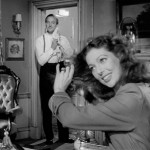
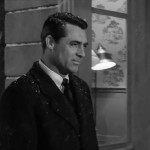
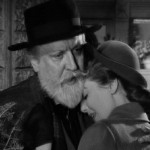
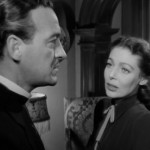
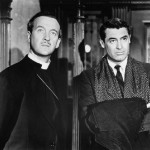
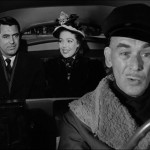

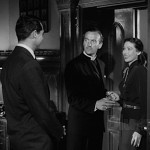
At the end of the movie when David Nivin, was up at the stand preaching the sermon, it looked like the actor Will qeer was in one of the pews.